Afrobarometer Research Training Workshop
United States International University - Africa, School of Humanities and Social Sciences, through its Department of International Relations, in conjunction with the School of Graduate Studies, Research and Extension, and Afrobarometer invite you to an "AfroBarometer Research Training Workshop".
About Afrobarometer
Afrobarometer is an independent pan-African research network that provides data on African citizens’ values, evaluations, and experiences. Indeed, Afrobarometer has become the global reference for high-quality data and analysis on African democracy, governance, economy, and society.
Afrobarometer’s principal objective is to give ordinary African citizens a voice in policy making. Grounded in the vision that African societies thrive when African voices count in public policy and development, Afrobarometer has been carefully and systematically capturing the ordinary citizen’s experiences, evaluations, and perspectives; and widely disseminating the findings to policy makers, policy advocates, civil society organizations, academics, news media, donors and investors, and ordinary Africans at the national, regional, continental, and global levels.
Eight rounds of surveys have been completed in up to 39 countries since 1999. Round 8 surveys (2019/2021) cover 34 countries.
Afrobarometer conducts face-to-face interviews in the language of the respondent’s choice with nationally representative samples that yield country-level results with margins of error of +/-2 to +/-3 percentage points at a 95% confidence level.
About Afrobarometer Week
The “Afrobarometer week” includes a series of events and meetings aimed at introducing Afrobarometer’s rich trove of data, as well as its unique analysis tools, to USIU-Africa faculty, USIU-Africa undergraduate and postgraduate students, and invited faculty and postgraduate students from nearby institutions.
The key objectives of the maiden “Afrobarometer week” are to:
- Create wider awareness among both USIU-Africa faculty and students about Afrobarometer data and analysis as a resource to support their work.
- Ignite interest among both faculty and/or postgraduate students in utilizing Afrobarometer data for new or ongoing teaching and research.
- Introduce users to the Afrobarometer Online Data Analysis facility as one key tool for using our data.
- Assess interest at USIU-Africa in building additional faculty and/or student skills in research methods and analysis based on using Afrobarometer data or similar data sources.
- Discuss with USIU-Africa the opportunities for building an ongoing collaboration to facilitate teaching and research using Afrobarometer data.
Please register through this Link
When: Tuesday, January 25 - Thursday, January 27, 2022
Time:
• Jan 25, 2022 10:00 AM - 7:30 PM (East Africa Time)
• Jan 26, 2022 9:00 AM - 8:00 PM (East Africa Time)
• Jan 27, 2022 10:00 AM - 3:00 PM (East Africa Time)
Venue: USIU-Africa, SS9 - New School of Humanities and Social Sciences Building
Let’s keep the conversation going on Twitter, LinkedIn & Facebook pages
Afrobarometer Resource Persons
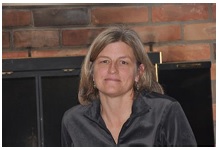 1. Dr. Carolyn Logan (Director of Analysis, Afrobarometer)
1. Dr. Carolyn Logan (Director of Analysis, Afrobarometer)
Carolyn Logan is an associate professor in the Department of Political Science at Michigan State University. She joined Afrobarometer in 2001 and the political science faculty in 2004, after receiving her PhD in international relations from the Fletcher School at Tufts University in 2002.
Carolyn’s research interests include democratization and political development in Africa, especially in East Africa, the Horn, and Somaliland. She is particularly interested in the role of “traditional” leaders and institutions in democratization, and in “citizen vs. subject” attitudes among African publics. Logan lived and worked in Kenya, Lesotho, Rwanda, Somaliland, and Somalia for nearly a decade before joining MSU and Afrobarometer.
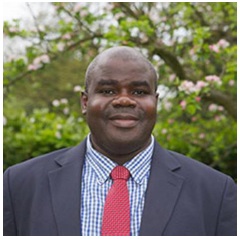 2. Dr. Boniface Dulani (Director of Surveys, Afrobarometer)
2. Dr. Boniface Dulani (Director of Surveys, Afrobarometer)
Boniface Dulani joined Afrobarometer in 2008 as a graduate research assistant while earning his doctorate in political science at Michigan State University (MSU). In 2011, he became fieldwork operations manager for Southern and francophone Africa.
Boni works closely with Afrobarometer’s program managers to plan and manage all fieldwork activities. He is based in Zomba, Malawi, where he also teaches at the University of Malawi.
In addition to MSU, Boni has studied at York and Sussex universities in the UK. He is a member of several professional bodies, including the American Political Science Association, African Studies Association, and Malawi Political Science Association.
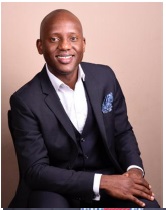 3. Dr. Hamadziripi Tamukamoyo (Director of Capacity Building, Afrobarometer)
3. Dr. Hamadziripi Tamukamoyo (Director of Capacity Building, Afrobarometer)
Hamadziripi Tamukamoyo leads Afrobarometer’s capacity building work. He is deeply passionate about Africa particularly issues concerning the youth, access to social justice, governance and anti-corruption.
Hamadziripi holds a Ph.D. in sociology from the University of the Witwatersrand, Johannesburg where he studied under a merit based Ford Foundation fellowship. He was a recipient of the competitively awarded Koffi Annan Business Schools Foundation fellowship at the European School of Management and Technology in Berlin, Germany where he earned a Master of Business Administration degree.
Hamadziripi has worked in academia, the non-profit sector, and as an independent development consultant.
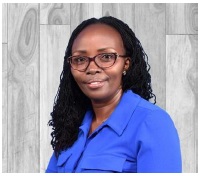 4. Dr. Mercy Kaburu (USIU-Africa and AAP Fellow, Michigan State University)
4. Dr. Mercy Kaburu (USIU-Africa and AAP Fellow, Michigan State University)
Mercy Kaburu is a postdoctoral fellow at Michigan State University under Alliance for African Partnership (AAP) - African Futures Program, and a lecturer in the Department of International Relations at United States International University-Africa (USIU-Africa). She joined Afrobarometer in 2021 at Michigan State University.
Mercy holds a PhD in international relations from United States International University-Africa. Mercy’s research interests include Kenya’s diplomacy and foreign policy, regionalism and regional integration through popular participation in the East African Community (EAC), and, women and political leadership, particularly on the realization of the two-thirds gender principle in Kenya.
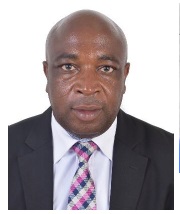 5. Prof. Paul Kamau (Associate Professor, Institute of Development Studies, University of Nairobi)
5. Prof. Paul Kamau (Associate Professor, Institute of Development Studies, University of Nairobi)
Prof Paul Kamau is an Associate Professor and Deputy Director at the Institute for Development Studies, University of Nairobi. Within the Afrobarometer, Prof. Kamau is the National Investigator leading the Kenyan team. He joined Afrobarometer in 2010 after receiving his PhD in Development Studies from the University of Nairobi in 2009. He is also the country team leader for the World Economic Forum – Global Competitiveness Index in Kenya, a position he has held since 2004.
An economist by training, Prof. Kamau is a holder of a PhD in Development Studies (University of Nairobi), MSc. in Economics (University of Zimbabwe), and BA in Economics (University of Nairobi). His research interests are in Economic Development, Governance & Devolution, Human Capital Development, Regional Integration, State-Business Relations, Global Value Chains, China-Africa relations and Industrialization where he has published widely.
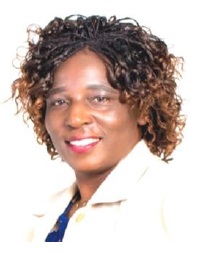 6. Ms. Anyway Chingwete (Deputy Director of Surveys, Afrobarometer)
6. Ms. Anyway Chingwete (Deputy Director of Surveys, Afrobarometer)
Anyway Chingwete is Afrobarometer’s Deputy Director of Surveys. Anyway assists the Director of Surveys in managing AB’s surveys in at least 36 African countries. She has strong research skills for both qualitative and quantitative research. She has also immensely contributed to the Afrobarometer publication database since her engagement with the Afrobarometer in 2005. Anyway currently sits on the management committee of the Institute for Democracy, Citizenship and Public Policy in Africa (IDCPPA), based at the University of Cape Town.
She holds a Master’s degree in Population Studies as well as an Honours degree in Economics from the University of Zimbabwe. In addition, she has pursued trainings in survey methodology, survey data analysis and poverty in Africa..
Event Documents and Presentations
WHEN
• Jan 26, 2022 9:00 AM - 8:00 PM
• Jan 27, 2022 10:00 AM - 3:00 PM
